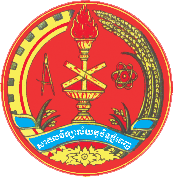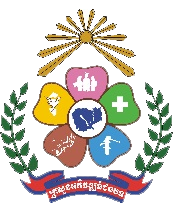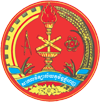PROJECT ACTIVITIES
Activity 1: Institutional capacity needs assessment: As suggested by the World Bank Institute3, institutional capacity building should be designed based up on capacity gaps of target organization(s), thus capacity needs assessment should be conducted. Because this institutional capacity building project aims at facilitating the implementation of rural water supply and sanitation in a context of CC, the target participants are officials of rural water supply and rural health care, collectively are under the provincial Department of Rural Development (PDRD). Survey participants will be randomly selected to take part in the capacity needs assessment, communicating through MRD departments of rural water supply and rural health care at national level and respective PDRD of the five provinces. The assessment will employ questionnaire surveys (face to face), collecting both qualitative and quantitative information reflecting their level of understanding about CC, impacts and vulnerabilities within water supply and health sectors, their experiences and challenges in planning rural water supply and sanitation infrastructure and service, and ways forward given the projection that extreme climatic event are anticipated to increase, especially low hanging fruit and locally available options. The study will be undertaken by researcher(s) of the Department of Environmental Science, RUPP with technical assistance from a technical adviser.
Activity 2. Curriculum development: The training curriculum will be designed based on capacity gaps identified, although it frames within the following subject areas: CC impacts within water supply and health sectors, climate risks assessment methods, and climate-informed decision making process in selection of appropriate adaptation options-producing courses outline. The next step is a review of relevant literature to explain the courses' content with illustrative examples and practical exercises-drafting training modules. The draft version will be put for comments through a one-day consultative workshop with concern stakeholders and revised accordingly-finalizing the modules. The curriculum will be designed into three training sessions, explained in key activity 3, 4, 5 and 6.
Activity 3.Training session 1: The first session aims at improving general understanding on CC, associated impacts and vulnerabilities on rural water supply and health, and this session may take approximately 2 days. It will be offered to a broader audience: 2 from the office of rural water supply, 2 from the office of rural health care of the provincial department of rural development, 2 from the provincial department of health, 1 from the provincial department of women affairs, 1 from provincial department of social affairs, and 2 from WATSAN DPs including the private sectors from each province, thus a total of 10 participants from each province or 50 participants.
Activity 4.Training session 2: The second session provides more technical knowledge on climate risk assessment with a practical field work to enable them to use the tool. This session involves a number of steps and would require about 5 days including 2 days for field investigation with supervision from the trainers. At this stage, participants are required to write an assessment report from their field investigation. Participants for this session are targeted specifically at the officials from PDRDs and WATSAN DPs (6 participants per province) - a total of 30 participants.
Activity 5 & 6. Training session 3 and demonstration projects: The final session is to allow participants to present their assessment's findings and get feedback followed by team work (by province) to determine appropriate designs of wells and toilets according to the assessment's outcomes-simulating a climate-informed decision making and planning exercise. Results of the groups' work will then be shared, discussed and most appropriate ones will be selected for demonstration projects. This final session may need about 5 days, including 2 days on the field for the first demonstration project. It should be noted here that the demonstration project will be implemented in all five selected provinces, one project (at least two wells and fours toilets depends on the budget available, preferably at local schools, health care centers, or pagodas - will be identified in consultation with participants of respective provinces) in each province. Monitoring procedures / framework for the demonstrating infrastructure will also be jointly developed by the trainers and participants in this session and implemented accordingly to keep track of infrastructures functions. The introduction of the monitoring exercise aims also to provide participants monitoring and evaluation knowledge and raise their attentions on the importance of such system in adaptation works. Participants for this session are those of the second session.
Activity 7. Dissemination forum: The final activity of the project is a dissemination forum, sharing experiences and lessons learned to government officials of rural water supply and rural health care nationwide, WATSAN DPs, and the first training-participants from health, women affairs and social affairs. The event aims to host about 100 participants for a period of one day. The training participants will be invited to present their work: the climate risk assessment (methods and key findings) and how the information was used in planning and designing water supply and sanitation systems, the designs of wells and toilets, and the monitoring procedures and results, together with their impressions and lessons learned. The participants will be invited to the venue one day before the forum to work with the trainers to review their notes, reports and monitoring records in order to prepare presentation(s). Every piece of information collected will be finally edited, analyzed and synthesized to produce a more scientific report, compiling assessments' findings, sound flood-proof well and toilet designs, monitoring procedures, and lessons learned, for sharing. The forum will also provide an opportunity for the MRD to discuss on its CC adaptation strategy (being developed at this stage) to thus provincial departments will be well informed.
Implemented By:


Supported by:
Cambodia Climate Change Alliance

